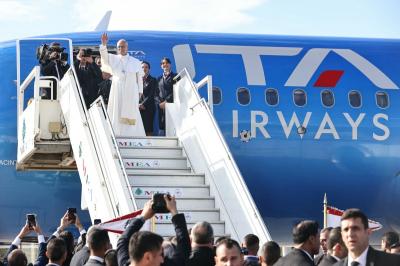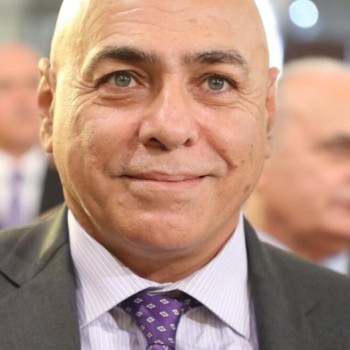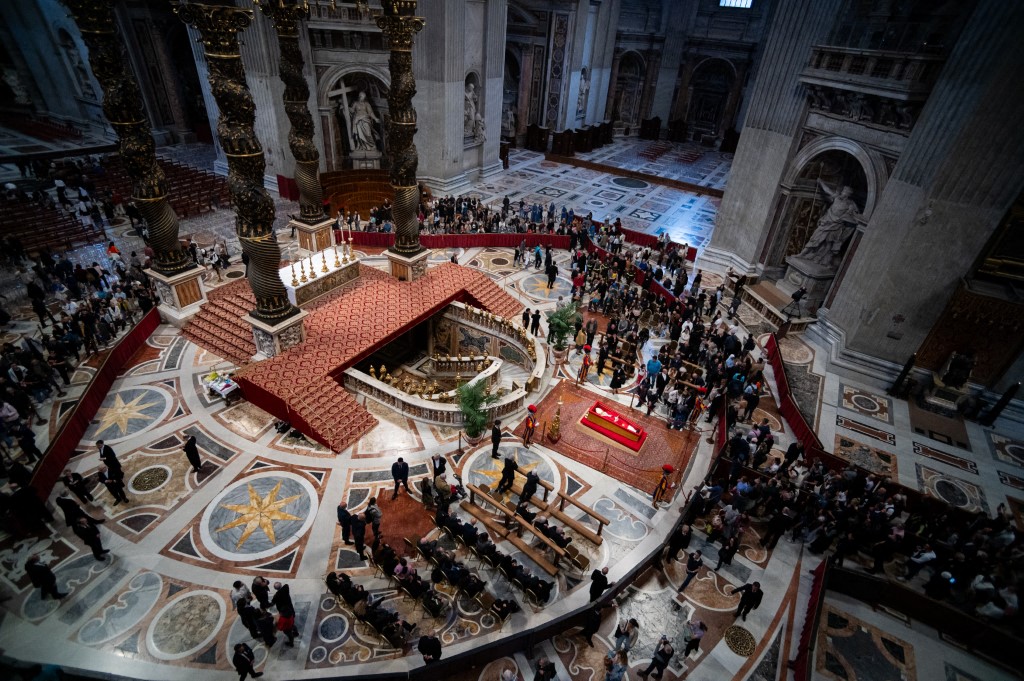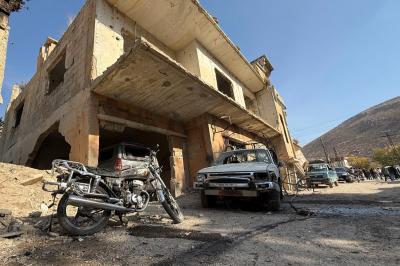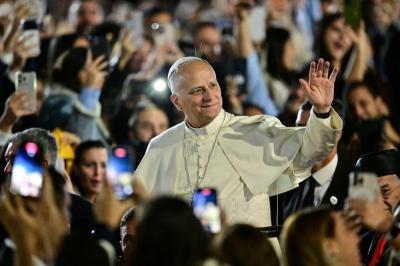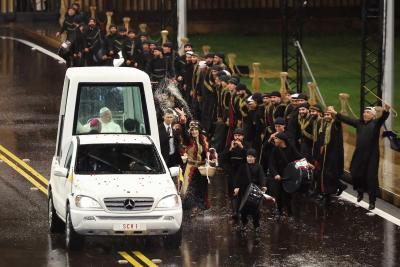Pope Francis's 12-year pontificate reshaped the Catholic Church's global identity, blending radical inclusivity with doctrinal tensions. His death on April 21, 2025, marks the end of an era defined by bold reforms and polarizing choices—leaving a fractured yet revitalized Church at a historic crossroads.
Peace Advocate Amid Wars
Francis's relentless diplomacy redefined the papacy's role on the global stage. From kissing the feet of South Sudanese leaders in 2019 to his impassioned denunciation of nuclear arms in Hiroshima, he framed the Church as a mediator in an age of conflict. Yet his pleas for peace—whether in Ukraine or Gaza—often met geopolitical indifference. His final Urbi et Orbi blessing was a parting rebuke: "Stop colonizing people with weapons."
Inclusion Paradox
Francis championed the marginalized—migrants, the poor, and LGBTQ+ Catholics—declaring, "Who am I to judge?" in 2013. But his pastoral openness clashed with institutional rigidity. While he softened the Church's tone on divorce and civil unions, doctrinal barriers on women's ordination and same-sex marriage held firm. Progressives hailed his vision; traditionalists, particularly in Europe and the United States, accused him of heresy.
Reform Against Resistance
His signature Synod on Synodality (2021–2028) sought to democratize Church governance, empowering laity and bishops alike. However, extending the process in 2025 only deepened divisions. Conservatives balked at debates over female deacons and LGBTQ+ inclusion, while reformers demanded faster change. Even his financial crackdowns—targeting Vatican corruption—faced entrenched opposition.
Global South's Rising Tide
Francis's most enduring legacy may be demographic: 80% of cardinal-electors now hail from Africa, Asia, and Latin America. This shift ensures the next conclave will prioritize poverty, postcolonial justice, and interfaith dialogue—not Western culture wars. Yet, nobody in 2013 could predict that in 2013, a conclave carefully chosen by Pope John-Paul II would elect Cardinal Jorge Mario Bergoglio as the next pope succeeding the dogmatic Benedict XVI.
So, what could Francis's successor look like?
- A reformist heir would likely be a Latin American, Asian, or African cardinal sympathetic to Francis's vision, such as Cardinal Luis Antonio Tagle of the Philippines, who could extend synodal reforms while stressing social justice.
- A traditionalist would likely be a European or North American cardinal, He might recentralize authority and reaffirm doctrinal rigidity, appealing to traditionalists but alienating the Global South.
- A bridge-builder pope would likely be a pragmatist from Asia or Africa, such as Cardinal Robert Sarah of Guinea, who might blend rigid theology with grassroots pastoral sensitivity, balancing reform and tradition.
The next pope's leadership style will be profoundly shaped by his personal background, formative experiences, and the context from which he emerges. As the Catholic Church stands at a crossroads the profile of the new pontiff will signal not just a change in leadership, but a reorientation of the Church's global mission and internal culture.
Geographical Origin, Pastoral Experience
If the next pope hails from the Global South he is likely to bring a leadership style attuned to the realities of poverty, migration, and religious pluralism. Such a background often fosters a pastoral, outward-looking approach, emphasizing social justice, inclusion, and the Church's role as an advocate for the marginalized.
Conversely, a pope from Europe or North America may be more focused on doctrinal clarity, institutional renewal, and the challenges of secularization.
Ecclesial Career, Ministry
Candidates with extensive experience in diocesan leadership or grassroots ministry—such as Cardinal Matteo Zuppi of Italy, known for his work with the poor and migrants—are likely to prioritize hands-on engagement, dialogue, and practical reform.
Those with backgrounds in Vatican administration or theological academia may emphasize doctrinal fidelity, internal governance, and continuity with established traditions.
Formative Life Events
Personal hardships, such as those faced by Pope Francis, who grew up in a working-class family and ministered in Buenos Aires slums, often cultivate humility, empathy, and a bias for action.
A history of missionary work or engagement with marginalized communities typically results in a leadership style that is inclusive, pragmatic, and willing to confront uncomfortable realities.
The next pope's leadership will be judged not only by policy but by the example he sets—his choice of residence, modes of travel, and willingness to engage with the marginalized. Francis's humility and simplicity set a new standard for papal conduct. Symbolic gestures—such as visiting conflict zones, washing the feet of prisoners, or addressing global summits—can powerfully communicate priorities and values, shaping both internal morale and external perceptions.
Decision-Making, Governance
A leader shaped by grassroots ministry may favor consultative, synodal processes, seeking broad input before making major decisions. This was a hallmark of Francis's approach, though he also acted unilaterally when necessary.
By contrast, a pope with a more administrative or traditional background may centralize authority, and move more cautiously on controversial reforms.
Courage, Reform
Tackling entrenched challenges, such as Vatican financial reform or clergy abuse scandals, requires not just compassion but steely resolve. Francis combined grace with toughness, and the next pope's willingness to confront institutional inertia will depend on his prior experience managing complex or crisis situations
The next pope will inherit a Church marked by unresolved debates. His background will influence whether he continues Francis's progressive trajectory or seeks to restore a more conservative order.
The next pope's leadership style will be compared to Francis's and how he interprets the Church's mission. Pope John XXIII once said that the Church has to read the signs of the moment. Francis did that and acted upon it. As one U.S. theologian said: "We expect popes to lift us toward God, Francis brought God down to us."
Now let us wait for what has always "inspired" the conclave members: the Holy Spirit.
Please post your comments on:
[email protected]
 Politics
Politics
